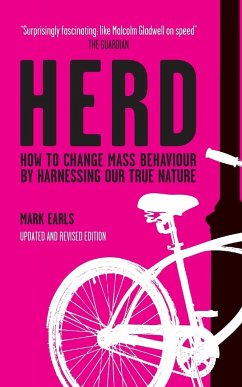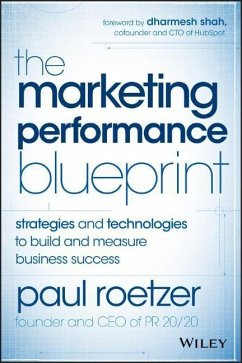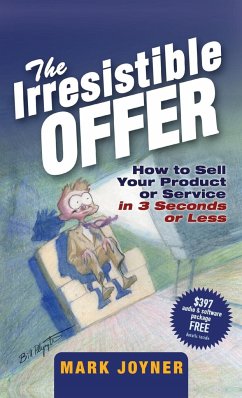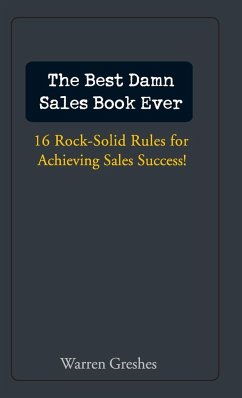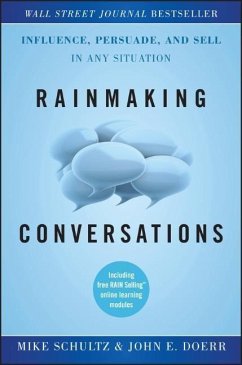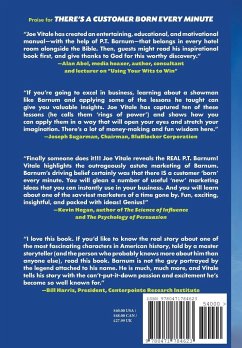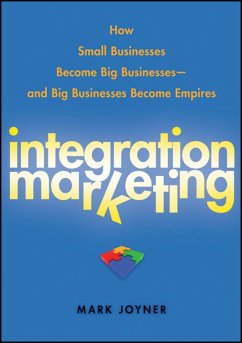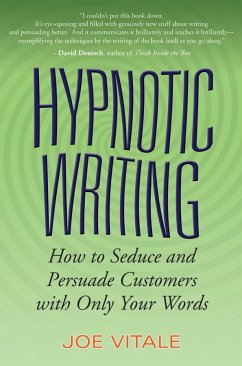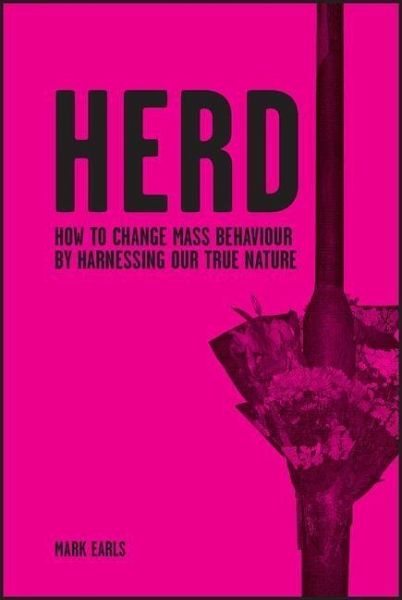
Herd
How to Change Mass Behaviour by Harnessing Our True Nature
Versandkostenfrei!
Versandfertig in 2-4 Wochen
33,99 €
inkl. MwSt.
Weitere Ausgaben:

PAYBACK Punkte
17 °P sammeln!
Can you explain the explosion of social phenomena like text messaging when there has been little or no promotion of the behaviour? How a Mexican wave happens? The emergence of online communities? Or - more sensitively - the steady rise of floral roadside tributes to traffic accident victims?Unless you have a good explanation of mass behaviour, you won't have much chance of altering it. This is why so many government initiatives struggle to create real change, why so much marketing money fails to drive sales, why most M&A programmes reduce shareholder value and most internal change projects don...
Can you explain the explosion of social phenomena like text messaging when there has been little or no promotion of the behaviour? How a Mexican wave happens? The emergence of online communities? Or - more sensitively - the steady rise of floral roadside tributes to traffic accident victims?
Unless you have a good explanation of mass behaviour, you won't have much chance of altering it. This is why so many government initiatives struggle to create real change, why so much marketing money fails to drive sales, why most M&A programmes reduce shareholder value and most internal change projects don't deliver lasting transformation.
Herd explains the 'why' of our struggles to influence mass behaviour. It reveals that most of us in the West have misunderstood the mechanics (the 'how') of mass behaviour because we have misplaced notions of what it means to be human. Mark Earls uses a diverse range of different sources, anecdotes and evidence - from Peter Kay and urinal etiquette to international rugby and rise of the Arctic Monkeys - to show that we are at heart a 'we-species', but one suffering from the 'illusion of I'.
In doing so, Earls challenges some of our deepest ideas to reveal the truth about who we are and what marketers, managers and governments can do to set about influencing mass-behaviour. Bold in its conception and engaging in its execution, Herd offers the most radical new theory of consumer behaviour in a generation.
Unless you have a good explanation of mass behaviour, you won't have much chance of altering it. This is why so many government initiatives struggle to create real change, why so much marketing money fails to drive sales, why most M&A programmes reduce shareholder value and most internal change projects don't deliver lasting transformation.
Herd explains the 'why' of our struggles to influence mass behaviour. It reveals that most of us in the West have misunderstood the mechanics (the 'how') of mass behaviour because we have misplaced notions of what it means to be human. Mark Earls uses a diverse range of different sources, anecdotes and evidence - from Peter Kay and urinal etiquette to international rugby and rise of the Arctic Monkeys - to show that we are at heart a 'we-species', but one suffering from the 'illusion of I'.
In doing so, Earls challenges some of our deepest ideas to reveal the truth about who we are and what marketers, managers and governments can do to set about influencing mass-behaviour. Bold in its conception and engaging in its execution, Herd offers the most radical new theory of consumer behaviour in a generation.





